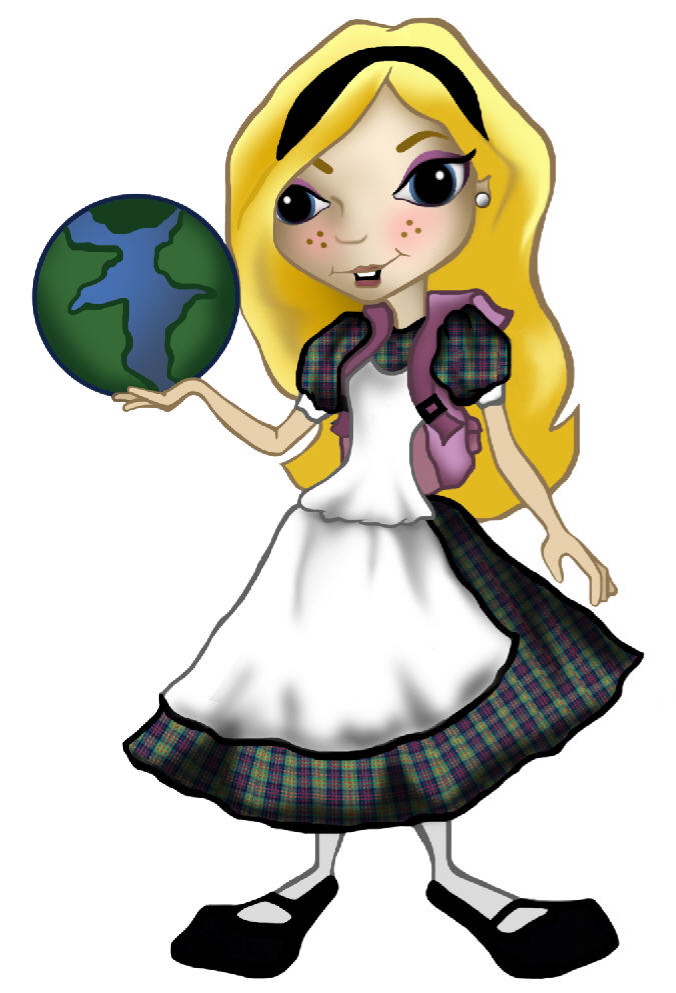Carnegie Mellon and Sun Microsystems Collaborate To Support Continued Development of Alice Programming Environment
Byron SpiceWednesday, November 19, 2008Print this page.

PITTSBURGH- Sun Microsystems, Inc., is teaming up with Carnegie Mellon University to support the continuing development of Alice, the university's innovative, Java technology-based computer programming environment that teaches students to program Java software while having fun creating 3D animations, stories and video games.
Alice is an object-oriented, open source system developed over the last 10 years that is provided free to educators and students by the university. It features a drag and drop interface that allows students to create 3D environments and populate them with a wide variety of easy to program objects and characters. Because it's based on open development principles, it encourages users and teachers to share knowledge to improve teaching methods and identify improvements to the software on which the system is based.
Alice was the key research project of Randy Pausch, Carnegie Mellon's beloved professor of computer science, human-computer interaction and design who died of pancreatic cancer last summer at the age of 47. Pausch spent more than a decade of his career developing the program. He was able to see a rough version of a new, enhanced Alice 3 just before he died.
Over the next three years, Sun Microsystems will work with Carnegie Mellon to globalize Alice, providing the tools to translate it into different languages and develop drag and drop artifacts unique to a variety of cultures. Sun will work with the Alice development team to bring the system to a worldwide audience of educators and students.
"The Alice team has done wonderful work over the last decade, making great contributions to computer science education," said Carnegie Mellon alumnus James Gosling, vice president and Sun Fellow who created the Java language. "There's no better investment we can make than in the education of the next generation. I'm thrilled that we're making this commitment."
Today, it's estimated that the current version - Alice- 2.0 - is being used in 10 to 15 percent of U.S. colleges and universities, as well as a number of high schools and middle schools. There is a version called "Storytelling Alice" that is especially attractive to middle school girls, helping them to become aware of the importance of computer science early in their educational careers.
A team of researchers headed by Associate Teaching Professor Wanda P. Dann and lead developer and Project Scientist Dennis Cosgrove is working around the clock to bring out Alice 3. Dann said that the support of Sun will enable her group to debug and extend their rough version of the system, increase the size of their team, speed up the development process and produce a higher quality product.
"Sun's participation will provide our team with the technical resources we need to bring the development of Alice 3 to completion over the next three years," Dann said. "We will bring out a full release of Alice 3 and follow that with the development of application programming interfaces that will make it useful in all STEM disciplines, including computer science." Dann said that Alice 3 also will make it easier for teachers using Alice to move their students into Java software.
Alice 3 also will feature essential arts assets from a version of "The Sims™" - one of the best selling PC video games of all time - which were given as a gift to the research team in 2006. The Sims content helps to transform the Alice software from a crude, 3-D programming tool into a compelling and user-friendly programming environment.
"Alice 3 is a major advance over the 2.0 version" said Peter Lee, professor and head of the Computer Science Department in Carnegie Mellon's School of Computer Science. "It retains the attractive, intuitive interface that motivates students to write computer programs almost without knowing it. At the same time, it provides a pathway to learning industrial-strength Java software programming. For many, this will be a great ticket to upward mobility."
The Alice Project has been supported in the past by the National Science Foundation, DARPA, Intel, Microsoft and SAIC, as well as Electronic Arts, Google, General Dynamics, the Heinz Endowments and the William Randolph Hearst Foundation. For more information about the Alice project, see www.alice.org. Carnegie Mellon makes downloads of the Alice software available at no cost at www.alice.org.
Byron Spice | 412-268-9068 | bspice@cs.cmu.edu
